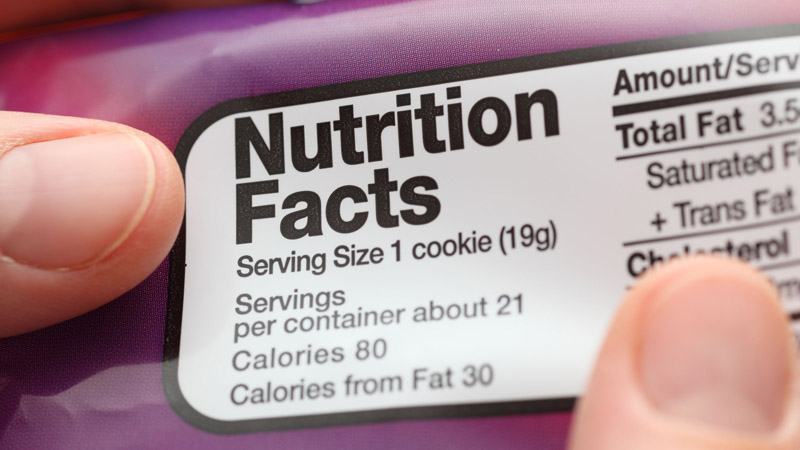Should You Trust Food Labels?

We are reminded constantly to check food labels and calorie counts of what we eat. Reading labels is a good thing, but should you take food labels for gospel? Tiffany Rios, Registered Dietitian and Certified Diabetes Educator with Shore Physicians Group, said that while there can be an incremental increase or decrease from what is listed, food labels are useful guidelines to follow for calories. But, she added that people will metabolize food differently, and that can impact the number of calories a person gets from a particular food.
What is a calorie?
According to the National Institute of Health (NIH), a calorie is a unit of energy and is the amount of heat necessary to raise the temperature of one gram of water by one degree Celsius. The average calories in food are determined by three factors: fats, carbohydrates and proteins. The calories in food provide the energy or the heat so that a body can function. The body stores as well as burns calories as fuel. Food that is listed as having 100 calories is describing how much energy the body will get from that food.
Recalculating nuts
KIND, the manufacturer of KIND Bars, recently changed the label on its health bars to reflect a reduction in the calories of almonds. Their decision to change the label was based on recent research that scrutinized how calories are calculated on food items. Looking at newer information on how the nuts are metabolized and often not fully digested resulted in the calorie count going from 170 down to 130. Debbie Pettipain, a dietitian as well as a spokesperson for the Academy of Nutrition and Dietetics, said of the KIND Bar and other nut products can have calorie variations. “One package could have two or more almonds than the other, and technically that would change the caloric count.” She added that the change for almonds is a modest drop, and it is worth keeping in mind that almonds, like all nuts, are calorie-dense foods, and it does not take much to overdo it. That small decline in calories does not make nuts into celery either.
Labeling food
Referring to the Nutrition Labeling and Educational Act that requires companies to include the calorie count on labels, Pettipain said it does not dictate how they come up with the numbers, but it does hold them accountable for the numbers being accurate. The Food and Drug Administration (FDA) has rules about how far off the calories can be from the label, mostly because food is an agricultural product and not always exactly the same size or grown in the same conditions. They permit up to 20% more or less than what is listed on the label to still comply with regulations, adding that while that may seem like a wide margin, the labels are still a good guideline for the food we consume.
The best food has no labels
Tiffany Rios has a healthier plan when it comes to looking at calories.
“It would be healthier if we ate more food without labels, like whole foods and grains that burn more calories than processed food. The body uses whole foods more efficiently than processed foods,” said Rios. “There is a whole cascade of hormones that send signals to let the brain know they are full. With fruits, vegetables, and grains that signal is clear, but with processed foods that are normally high in sugar or carbs, that ability to feel full is not so clear and does not happen as quickly. The result is often consuming more than necessary before that feeling of being full occurs.”
The registered dietitian explained the thermic effect of food is basically telling the consumer the number of calories that will be expended to break down food. “While counting calories is initially a good thing to gain awareness of what you are eating, it is best to include more fresh foods, and that means to eat more foods with no labels,” said Rios. “Eventually, that honeymoon phase of counting calories will be over. The healthier way is to shop the perimeter of the grocery store where you find the fresh and unprocessed foods, lean meats and fish.” She suggested it is wise to stay away from the middle of the store where there are cookies, chips, and products made with white flour and sugars.
Don’t be intimidated-shop with an agenda
She admitted some people might feel a little intimidated initially, but lean protein such as fish, eggs, tuna, and even no sugar added Greek yogurt are important parts of a healthy diet. “I tell all my patients to have a recipe in mind when they go to the grocery store. Go in with an agenda, think about what you would like to make, and that will allow you to focus.”
As a registered dietitian, Rios said she helps patients with their meal planning to create a healthier future where they rely less on the calories on the label and more on consistently incorporating lean meats, fruits and vegetables into their diet.
To make an appointment with Tiffany Rios at the Shore Physicians Group office in Northfield, call 609-365-5300.